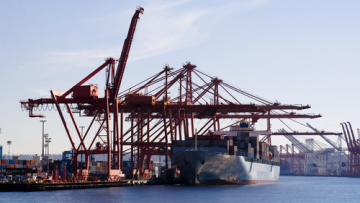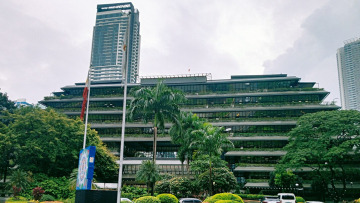Major ‘coal banks’ refuse to stop financing coal power boom in Asia
Camilla Perotti, Banks and Coal Campaigner at BankTrack | +31 (0) 6 18 28 34 40
Daniel Willis, Coal Finance Campaigner, Recourse | +447595054391
Dustin Roasa, Research Director at Inclusive Development International | +1 828 458 0312
Novita Indri, Fossil Fuels Energy Campaigner, Trend Asia

Camilla Perotti, Banks and Coal Campaigner at BankTrack | +31 (0) 6 18 28 34 40
Daniel Willis, Coal Finance Campaigner, Recourse | +447595054391
Dustin Roasa, Research Director at Inclusive Development International | +1 828 458 0312
Novita Indri, Fossil Fuels Energy Campaigner, Trend Asia
The success
Sixteen major commercial banks publicly excluded project finance for 44 coal power projects announced or proposed in South- and Southeast Asia. These projects were identified by the #EndCoalFinance coalition, together with the commercial banks likely to be approached for their finance.
BankTrack's role
Together with Inclusive Development International and Recourse, BankTrack launched the #EndCoalFinance campaign with the purpose of curbing private and public finance to the expansion of coal in Asia. BankTrack engaged with all the 98 banks identified as potential financiers of 44 announced coal power projects and published an analysis of their responses on the new endcoalfinance.org website.
New research published today by the End Coal Finance coalition suggests commercial banks are prepared to finance a wave of new coal power projects across Asia. The coalition – initiated by BankTrack, Inclusive Development International, and Recourse – has identified 44 new coal power projects currently in the pipeline in Asia, and 98 commercial banks most likely to be approached for financing. The coalition engaged each of these 98 banks, asking that they commit not to back the projects. The results are alarming: more than 4 out of 5 (83%) did not rule out financing any of the projects directly, and none presented policies that exclude the possibility of indirectly financing them.
These ‘coal banks’ are the focus of a new campaign and website launched by the coalition today. The website lists all 98 banks and spotlights the ‘dirty dozen’ banks their research suggests could end up backing the highest number of new coal power projects. These include State Bank of India, Bank of India, Mizuho Financial Group, Bank of Baroda, Bank of China, Union Bank of India, DBS Bank, CTBC Bank, Maybank, Indian Bank, Canara Bank, and ICBC.
Inclusive Development International’s research identified 44 coal power projects that have been announced or proposed in India, Indonesia, the Philippines, Laos, Vietnam, Bangladesh, Mongolia, Pakistan, and Thailand. If developed, the projects would expand coal power capacity in these countries by 10%,(1) adding nearly 40GW of new coal capacity, more than Germany or Russia's operating coal power capacity.
The group also identified 98 global commercial banks likely to be approached to finance these projects, based on their banking relationships with project developers and their past financing for coal plants in the region. When approached by the End Coal Finance coalition on their potential involvement in financing these 44 coal expansion projects, only 23 banks responded, with only 16 banks committing not to provide direct finance for any of the projects. However, none of the 98 banks offered evidence of having internal policies in place that would prevent financing companies expanding their coal activities, opening the possibility of indirectly financing these projects.
Some of the announced projects, like Udupi power station and Udangudi Super Critical Thermal Power Project in India, or Ha Tinh Formosa Plastics Steel Complex power station in Vietnam, aim at expanding operational coal power stations that have already received backlash and opposition for the severe impacts on the livelihoods of local communities and the environment. Other projects concern the development of greenfield coal-fired power stations, and projects like MP Adani power station or JSW Utkal Steel power station have already experienced strong local resistance.
“The willingness of so many commercial banks to continue to finance coal is disheartening, when the science is clear that, to curb the climate crisis, all coal expansion should be immediately stopped. If we also consider the adverse impacts on local communities and the environment that many of these projects are set to cause, the picture becomes even more grim. Crucially, these 44 projects will not materialise without the support of financial institutions and we won’t stop until these banks rule out their involvement,” said Camilla Perotti, Banks and Coal Campaigner at BankTrack.
"This massive new wave of coal power expansion threatens to derail the efforts made across Asia, and globally, to wean the world off coal. These banks must commit to stop financing coal projects and their developers, so that the harm done by coal to communities, livelihoods and the planet can be brought to an end," said Daniel Willis, Coal Finance Campaigner at Recourse.
“While many large multinational banks have pledged to stop financing coal in recent years, our research shines a light on the regional and national banks that continue to fund coal in Asia. These banks have slipped under the radar for too long. They must stop providing a lifeline to an industry that has caused such harm globally and to the people of Asia,” Dustin Roasa, Research Director at Inclusive Development International, said.
“The persistence of coal financing by banks will overshadow efforts to achieve Indonesia's Paris Agreement commitments amid efforts to end this addiction. Furthermore, this financing would only exacerbate the destruction of living space due to extraction activities and further make Indonesia's existing climate issue worse,” Novita Indri, Fossil Fuels Energy Campaigner at Trend Asia, said.
More details regarding the projects and the banks that may be involved in their financing, as well as the banks’ positions on coal expansion, can be found on the End Coal Finance website, launched today.
Notes to editors:
1. The project focused on coal power projects identified in South- and Southeast Asia, with the exclusion of China.





